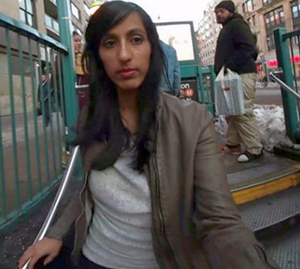New York, Mar 25: A Sikh-American girl was harassed on a subway train here when a white man, mistaking her to be from the Middle East, allegedly shouted "go back to Lebanon" and "you don't belong in this country," the latest in a series of hate crimes against people of South-Asian origin.
Rajpreet Heir was taking the subway train to a friend's birthday party in Manhattan this month when the white man began shouting at her, according to a report in the New York Times.
Heir recounted the ordeal in a video for a Times section called 'This Week in Hate', which highlights hate crimes and harassment around the country since the election of President Donald Trump.
Heir said she was looking at her phone when the white man shouted at her saying, "Do you even know what a Marine looks like? Do you know what they have to see? What they do for this country? Because of people like you."
He told Heir he hoped she was sent "back to Lebanon" and using expletives said, "You don't belong in this country," before he left the subway.
Heir, a Sikh, said she was born 30 miles from Lebanon, not the Middle Eastern country but a namesake city in the American state of Indiana.
Heir said as the man left the train, she saw a young white woman in the train staring at her "with tears in her eyes."
"What had just happened provided evidence of what I had sensed beneath the surface for a long time - racism that can turn violent and lately does," she said.
The report added that two fellow passengers stepped in to help Heir after the incident on the train. One woman tapped her on the shoulder and asked if she was all right. "That meant something because when you're a minority, you're so used to just experiencing things on your own," Heir said.
Another woman reported the incident to a police officer at a subway station.
The report said that as New York City works to respond to a rise in reports of discrimination and harassment, subways have emerged as a source of special concern.
It said the anti-harassment group Hollaback has received nearly double the usual number of reports of harassment on the subway and more than usual involve racist, Islamophobic or anti-immigrant comments since the election of Trump.
Heir's case is a yet another disturbing incident of racial discrimination in which people of South Asian origin have been targets of abuse and hate crime.
Last month, Indian-origin woman Ekta Desai had posted a video online of an African-American man racially abusing her and calling her inappropriate names as she was traveling on a subway train.
Fear and anxiety had gripped the Indian community following the tragic shooting in Kansas of 32-year old Indian engineer Srinivas Kuchibhotla, who was killed when 51-year old US Navy veteran Adam Purinton opened fire at him and his friend Alok Madasani before yelling "get out of my country."
Purinton had assumed the two Indian men were "Middle Eastern."
Earlier this month, a 39-year-old Sikh man was shot while working on his car in his driveway in Washington state. The gunman reportedly told him to "go back to your own country" before pulling the trigger, according to the Seattle





Comments
Add new comment